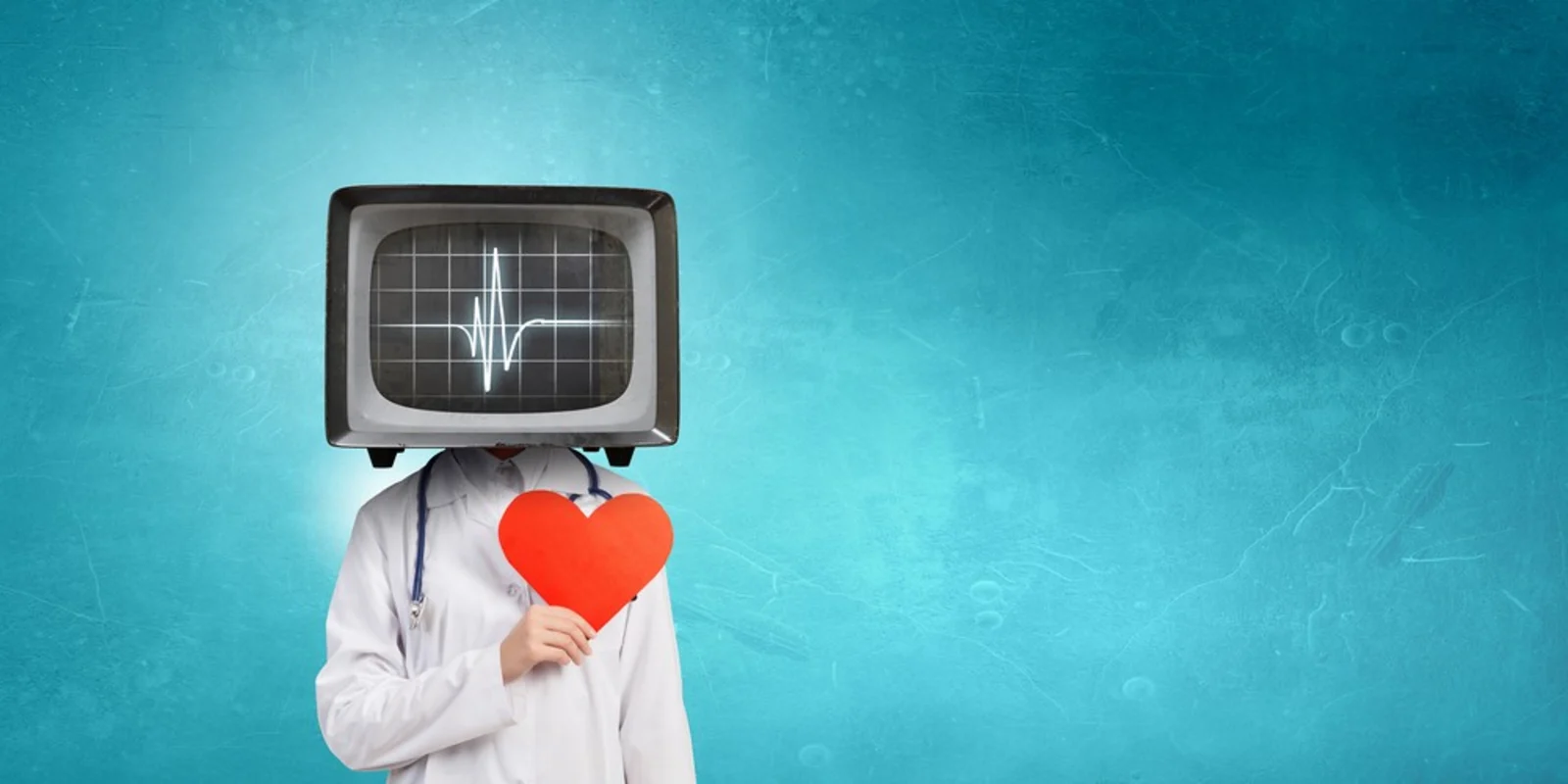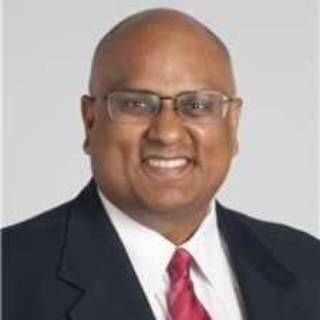
Many physicians detest medical shows on TV. They find them unrealistic, cloying, melodramatic, and just downright absurd.
Not me.
I love them.
Let me clarify. I agree with the above criticisms on the points. Yet, I still enjoy watching them. In actuality, I don’t enjoy the viewing as much as I do their deconstruction, picking them apart, and trying to understand what the message is with the cases and patients they decide to display. And, if for no other reason, I watch them because the general public (i.e., our patients) watches them and garner views, opinions, and, sadly, even facts from them. Watching them helps rebut those notions immediately with first hand viewing experience.
Medical shows have haunted the vast wasteland of television nearly since the medium’s inception. There have been many: some great, some terrible. But, for now, I want to focus on the best medical show American TV has to offer (to be named at the bottom of this article. See if you can guess the show along the way). In my humble opinion, it’s still the best show ever aired on US television. (To all you Sopranos, MASH, The Wire, and other random shows like Married with Children or Chico and the Man fans [from the Greek root, fanaticus, I believe], I respectfully say, “get off me.”)
Why does a show that has been off the air for nearly 30 years (series run: 10/26/82–5/25/88, RIP {Requiescat in pace — Whispers “You’re totally going to be sooo smart after reading this article”}) still stands above all others? Let me count the ways.
1. The setting, plots, and challenges faced by all the characters were realistic, sometimes painfully so.
On occasion, they went off the rails for sweeps or when facing cancellation. The episodes I found most problematic are the most highly-rated ones, which says far more about America’s viewing habits than it does the show, or me (I hope).
2. I will challenge anyone to find me a better cast in the history of television.
Let’s get started:
• Denzel Washington. Not his first acting role, believe it or not. That was when he played a thug trying to mug Charles Bronson in Death Wish before being killed by a .32 caliber, nickel-plated, Colt Police Positive pistol with pearl grips — yeah, don’t believe it. Sadly, like much of life nowadays, Denzel’s role in Death Wish is just an Internet rumor. His real-life acting debut was in the totally forgettable Carbon Copy.
• Mark Harmon (more on him soon)
• Howie Mandel
• Alfre Woodard
• Ed Begley Jr
• Ed Flanders (okalie dokalie, neighbor — -oh wait, wrong name, wrong show)
• Helen Hunt
• Kavi Raz, who became the first Indian, or even South Asian (Jai Hind, baby!), actor to be cast as a regular member in a network TV show
• and Eric Laneuville, who went on to direct tons of TV episodes over the past two decades. He’s now an executive producer on CBS’s “Bull”, which, sadly, has nothing to do with Penn, Teller, or Pamplona. Not bad for a guy who started out as an orderly in only a recurring role and not as a regular cast member.
3. It tackled huge issues of the times, as well as timeless ones.
South African apartheid, abortion, rape, race relations, the rise of AIDS, loss of patients, sudden loss of family, working while still grieving, the joys and pains of residency, hospital politics, and the corporatization of medicine among many others served as issues around which plots were formed.
4. The show was fearless.
They had a multiple episode arc where a resident was raped. A male resident. In the early 80s. On TV.
Yeah.
It also had a bisexual woman character (Dr. Cathy Martin, played by Barbara Whinnery), who has to be the first openly bisexual character in the history of television. She was subsequently raped. By a serial rapist. Who was one of her fellow residents (in this case, a man).
Yep.
Both arcs involved multiple episodes dealing with sexual assault, its aftermath, how to talk to friends/colleagues that went through such a horror, and how it affected the victims in the long term. It was particularly stinging to the young doctors who realized how poorly they were handling patients with such issues given how poorly they did with their own friend at work. It was the first time many of them realized that the white coat they wear is not a shield from the brutal realities of life that visit not just strangers, but even us.
This wasn’t just a sensationalistic sweeps week gag that disappeared as quickly as it arrived. The writers and cast were dedicated to the aftermath for more than the rapes themselves.
Mark Harmon’s character (a young, handsome plastic surgeon who was a “ladies’ man”) was the first person on TV to contract AIDS. Imagine if we had social media back then. Yes, just shudder at the mere thought….
This story arc explored morality, mortality, the vulnerability of an ill healer, and the explosion of AIDS as we as a nation were grappling with a disease unseen like any other before.
Near the end of the series, the chief of staff moons the hospital president and implores him to kiss his ass. NBC censors let it air as is, and it was the first nudity on network television.
5. The dialogue still remains unparalleled.
Today, dialogue is all cliches, contrived, and only serves to advance the gruel, thin plot of the show. Writers, and especially directors, would be scared to death to crank out scene chewing dialogue like this. The dialogue didn’t just entertain, but informed and instructed us in age old wisdom as seen next.
Craig: It may come as a shock to you, Ehrlich, but you’re a doctor, not a delivery boy! No wonder you’re four steps behind all the surgery residents around here. You’re too busy studying to be an orderly!
(Who doesn’t identify with having endured a hard nosed/occasionally tyrannical attending in our training? Maybe the new generation believes that’s us?)
Ehrlich: Anything else I can do for you out in the free world?
Morrison: Drop in on my wife. Tell her I’m alive and being held captive at St. Eligius.
(We all made sacrifices in our training and our families did as much or more than we did. This show never forgot that all important side of the equation.)
Fiscus: [looking around hospital mortuary]: It’s hard to be comfortable in a room where everybody else is so stiff.
(Gallows humor is the defense mechanism we all used to get through training whether it be all the time, on a tough rotation, or on a terrible night of call.)
Westphall: Wendy, diagnosis is less of a gamble if you start at the beginning.
(The wise old attending who gently reminds you of your errors, but does so in a constructive way and also frames it in an aphorism that can be reiterated to the next generation is the ones= we still cherish decades after we finished our training.)
Fiscus: Any communicable diseases?
Nurse: What would you like?
(We all fondly can recall the banter back and forth with wise cracking nurses.)
Auschlander: My apologies to Hippocrates but sometimes the best cure for all is death.
Westphall: Sometimes, the people closest to a situation have the least amount of insight into it, especially when it means they’re going to have to recognize something they don’t want to see.
(Jaw dropping wisdom for us all.)
Westphall: [to Anya] Dr. Craig’s philosophy is this: The only problem with being on call every other night is that you miss half the interesting cases.
(An oldie, but a goldie.)
Auschlander: Now, I know I’m going to die soon and there isn’t anything anyone can do about it. But I’d give everything I own, if I could have just one more day… one more minute… to enjoy everything my family has meant to me. And that’s why I know… that what you’re doing to yourself is absolutely wrong.
Morgen: Yeah, it’s easy for you to say, but I bet if you died 20 years ago, you’d have still lived a better life than I ever will.
Auschlander: Life has dealt us both a bad card but you have many more left in the deck and it’s only a fool who wouldn’t play out his hand.
(Amen. Preach, brother, preach!)
(Quotes courtesy of imdb and wikiquote)
6. The show was for the people of its time. It came from the current perspective, not from a group of disinterested observers in a parallel universe.
For example, the residents marveled at the wondrous sight of the first ATM in the hospital. They noted that they could now get money at any time and not be held mercy to when banks were open, which was never at a time residents could actually access them. They worried that a bunch of randos (as the kids say) using the ATM would be removing their hard earned money from their account. They eyed the massive amount of money that must rest within this new contraption.
When’s the last time a show would spend that kind of time on a scene such as this that did absolutely zilcho to advance the plot of the show? And it all happened within the hospital walls.
Ladies and gentlemen, I give you, St. Elsewhere, the best show in the history of television.
Sadly, the show ended in the late spring of 1988. Many good shows have come and gone since then, but none quite this good. I suppose fans of ER (1994–2009) will come out of the woodwork to defend it.
Tell me what you think in the comments!
Maybe one of your favorites will be next to discuss.
I’m a 46 year old pulmonary/critical care/sleep medicine physician who has been accused of being a TV and film junkie (which is pretty good considering all the other things you can be a junkie of). What are your thoughts? Share your 'nominations' for best medical show ever!







